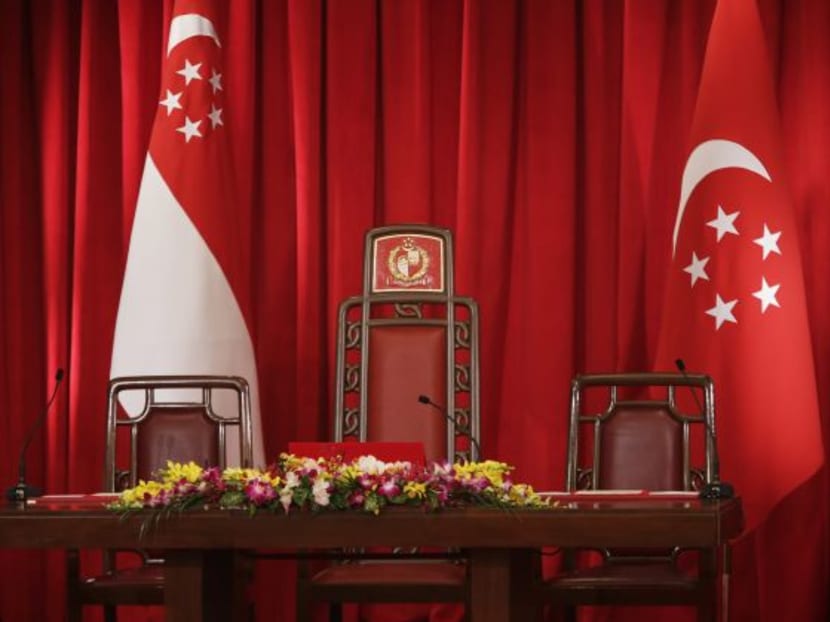Presidential Election: Details of assessment process for candidates’ eligibility disclosed
SINGAPORE — Details of how the assessment of presidential hopefuls’ eligibility to contest will be done, based on the more stringent criteria kicking in for the upcoming election, have been spelt out for the first time.
SINGAPORE — Details of how the assessment of presidential hopefuls’ eligibility to contest will be done, based on the more stringent criteria kicking in for the upcoming election, have been spelt out for the first time.
Among the new requirements is one that states a prospective candidate must have served as the chief executive of a company for at least three years, with the company having at least S$500 million in shareholders’ equity, on average, in the most recent three years.
To prove so, they would have to submit the relevant financial statements prepared according to accepted accounting standards, including audit reports and directors’ statements.
If the financial statements are not available, a listed company can submit the latest published results, and for a non-listed company, the candidate can submit reliable unaudited financial statements. This new requirement was among the various changes to the Elected Presidency that were passed into law last November, which was tightened from an earlier threshold of S$100 million in paid-up capital.
According to Accounting and Corporate Regulatory Authority (Acra) figures last year, there were 691 Singapore companies with shareholders’ equity of or exceeding S$500 million, which is about 0.23 per cent of all Singapore-incorporated companies.
However, the actual figure is expected to be higher as about 80 per cent of companies do not file their financial statements with Acra.
Prospective candidates would also have to show that the company had, on average, made profit after tax the entire time that the candidate was serving as the chief executive. This will be calculated based on the most reliable available financial statements.
The framework for assessing candidates’ standing was based on feedback from a consultation exercise involving Singaporean leaders from the accountancy profession as well as academics from the accountancy faculties.
They include the president of the Institute of Singapore Chartered Accountants Gerard Ee, and chairman of the Singapore Accountancy Commission Chaly Mah, among others.
Among the various pieces of feedback offered was that the information submitted should be verifiable and reliable, while consolidated group figures should be used if the company is a parent firm. SIAU MING EN










